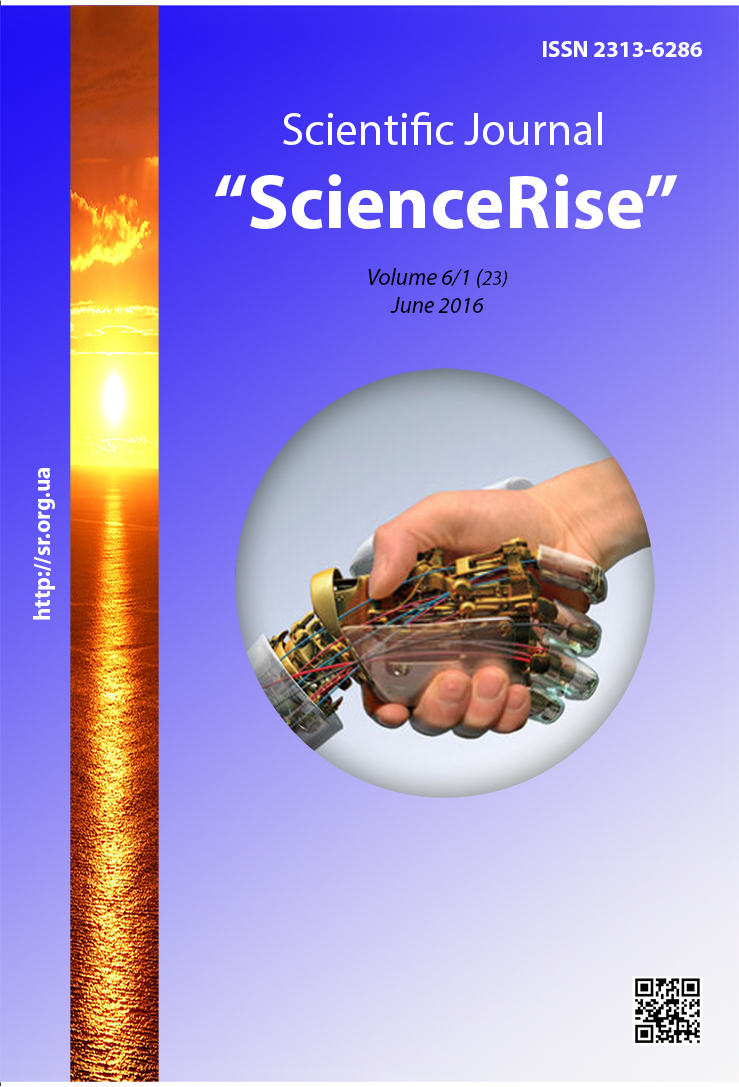Formation of the intellectual capital: the situational approach
DOI:
https://doi.org/10.15587/2313-8416.2016.72551Keywords:
intellectual capital, situational approach, forecasting methods, strategic analysis, strategyAbstract
An effects of the intellectual capital on a sustainable development of economic system in the conditions of economy of knowledge is established. The essence situational approach in system of forecasting methods of the future of economic systems is defined. The methodical approach to situational analysis of formation of intellectual capital which includes monitoring and formation of information base, the analysis of an environment of the intellectual capital formation, directly working out of scenarios and strategy of the intellectual capital is developedReferences
Sveiby, K. E. (1998). Intellectual capital: Thinking ahead. Australian CPA, 68 (5), 18–22.
Edvinsson, L., Malone, M. S. (1998). Intellectual Capital: The proven way to establish your company’s real value by measuring its hidden brainpower. London: PIATKUS BOOKS, 240.
Brooking, A. (1996). Intellectual capital: core assets for the third millennium. London: Cengage Learning, 224.
Bontis, N. (1996). There’s a price on your head: managing intellectual capital strategically. Ivey Business Journal (formerly Business Quarterly), 40–47.
Molnar, M. J. (2004). Executive Views on Intangible Assets: Insights from the Accenture. Economist Intelligence Unit Survey. Intangible Assets and Future Value, 1, 2–3.
Aaker, D. A. (2002). Strategicheskoe rynochnoe upravlenie. Sankt-Peterburg: Piter, 182–189.
Bestuzhev-Lada, I. V. (Ed.) (2007). Malaja rossijskaja jenciklopedija prognostiki. Moscow: Institut jekonomicheskih strategij, 328.
Laeva, T. V. (2006). Scenarnyj analiz kak osnova strategicheskogo planirovanija v organizacii. Menedzhment v Rossii i za rubezhom, 2, 12–18.
Dukot, C., Liben, G. J. (1980). A tipology of scenarios. Futures, 12, 51–57.
Huss, W. R. (1988). A move toward scenario analysis. International Journal of Forecasting, 4 (3), 377–388. doi: 10.1016/0169-2070(88)90105-7
Dannikov, V. E. (2004). Primenenie scenariev v neftegazovom biznese. Jekonomicheskie strategii, 5-6, 86–89.
Mjet'juz, R., Ageev, A., Bol'shakov, Z. (2003). Novaja matrica, ili Logika strategicheskogo prevoshodstva. Moscow: Olma-press, Institut jekonomicheskih strategij, 239.
Downloads
Published
Issue
Section
License
Copyright (c) 2016 Валентина Полікарпівна Антонюк

This work is licensed under a Creative Commons Attribution 4.0 International License.
Our journal abides by the Creative Commons CC BY copyright rights and permissions for open access journals.
Authors, who are published in this journal, agree to the following conditions:
1. The authors reserve the right to authorship of the work and pass the first publication right of this work to the journal under the terms of a Creative Commons CC BY, which allows others to freely distribute the published research with the obligatory reference to the authors of the original work and the first publication of the work in this journal.
2. The authors have the right to conclude separate supplement agreements that relate to non-exclusive work distribution in the form in which it has been published by the journal (for example, to upload the work to the online storage of the journal or publish it as part of a monograph), provided that the reference to the first publication of the work in this journal is included.

